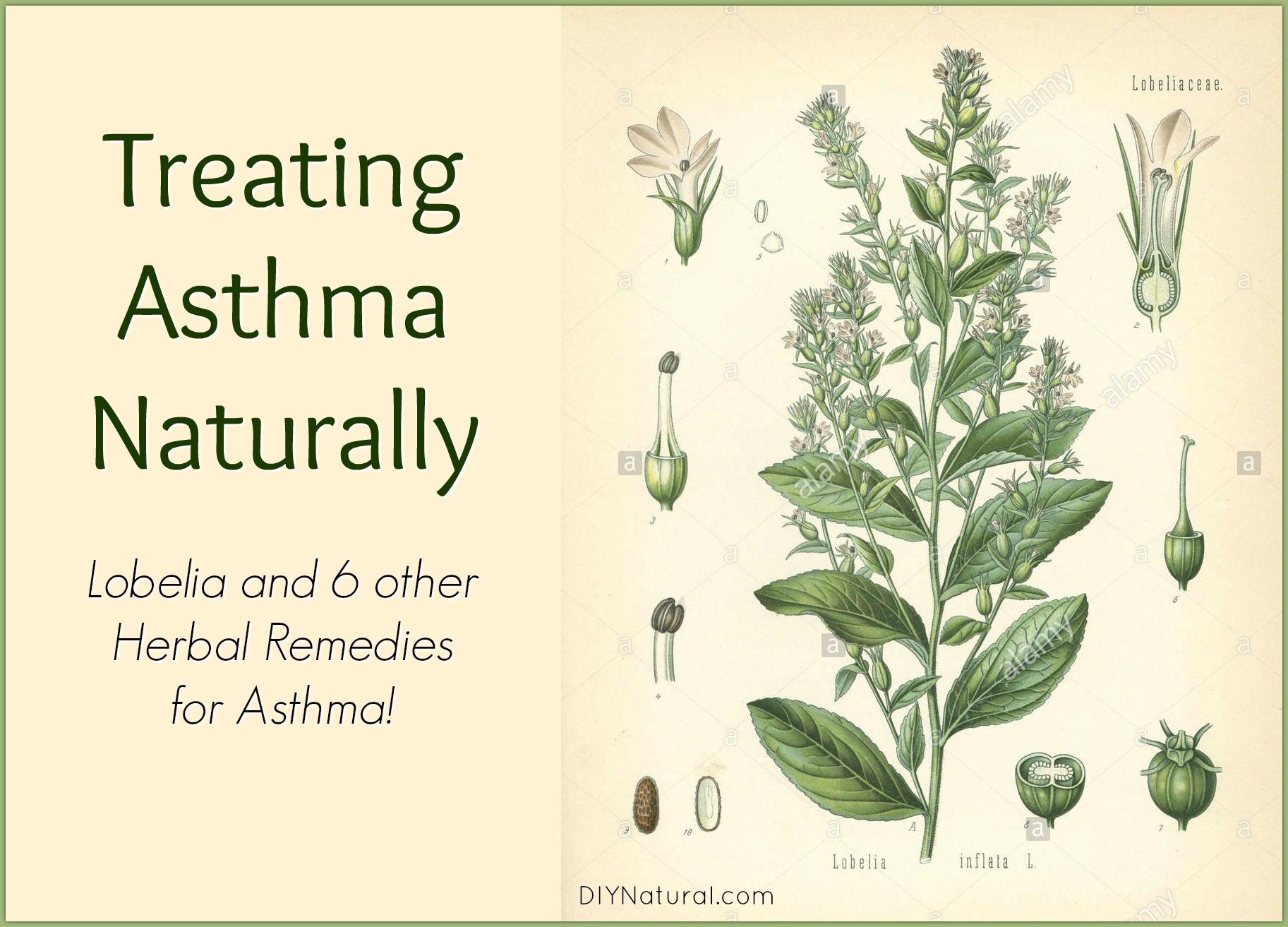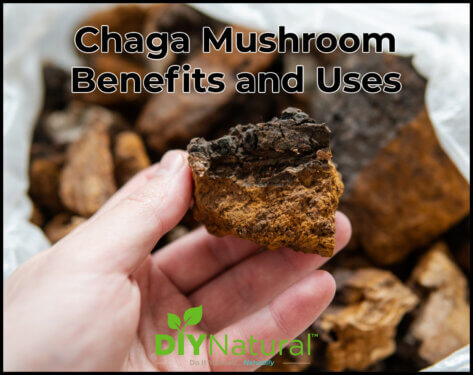
Asthma is a condition that is characterized by a constriction of the airways due to irritation and inflammation. As a syndrome, people have been studying asthma since the time of the Egyptians.
If you suffer from asthma, you are well aware of the wheezing, chest tightness, panic, and feelings of suffocation that can be experienced when a case flares up. There are many things that can set off an asthma attack, but most commonly this experience is associated with an allergen of some sort.
Treating Asthma Naturally with Herbs
Treating asthma naturally should consist of two different strategies: 1) a plan for the acute symptoms of an attack, and 2) a longterm plan to address any underlying weakness in the body’s system health.
Acute Symptoms Remediation
Lobelia (Lobelia inflata) – I think anyone treating asthma naturally should have a lobelia tincture in their medicine cabinet. Lobelia is an emergency bronchodilator. In some cases, asthma attacks can be so severe that the lungs seize up and no air is taken in. Lobelia can open the airways enough to continue to receive oxygen while you wait for the emergency squad; a difference I think we can all agree adds up to a pretty big deal.
Lobelia can be added to a daily tea for health as well, but be mindful of the amount you use. More than a pinch added to your tea blend and you are likely to enjoy its other strength, as an emetic.
Long Term Health
Any natural program undertaken to treat asthma naturally should employ a long-term program of building the health of the lungs. Daily teas including some of the following plants would be very helpful to add to changes in diet, movement, and lifestyle.
Raspberry Leaf (Rubus idaeus) – The leaves of red raspberry are highly nutritive and make a great addition to any respiratory formula.
Red Clover (Trifolium pratense) – Not only are the flowers of this plant used as a general respiratory tonic, but they also support the health of the liver. In the case of asthma, it can be helpful to keep the liver going about its daily job of filtering toxins out of the blood. When the liver works optimally, there is often less for the body to react to in the way of allergens.
Garlic (Allium sativum) – The garlic bulb is one of those plants that is difficult to leave off the list for any ailment. Here in the respiratory system, it is seen as an important anti-inflammatory. It also serves to encourage the mucosal membranes to produce appropriate lubrication. It can be eaten fresh or used as a plaster applied topically when the lungs are particularly tight.
Hyssop (Hyssopus officinalis) – In The Earthwise Herbal, Matthew Wood recommends hyssop as a syrup. This is a well-known lung tonic that is both anti-inflammatory and expectorant. Particular to the treatment of asthma, it encourages the mucous membranes that line the respiratory tract to lubricate, alleviating the dryness that stimulates an asthma attack.
Plum bark (Prunus americana or P. domestica) – Suggested by some to be specific for the treatment of asthma, this is rarely mentioned in common Western herbology. If you have a plum tree in your yard, it might be worth adding some of the leaves and bark (just under the outer hard coating) into your favorite healthy tea recipe and see how it works for you.
Mullein (Verbascum thapsus) – Similar to hyssop, mullein is also known to add moisture to the hard dry airways characteristic of asthma. This is a great option to use in a daily formula as it has so many other benefits for other body systems and is safe to use over long periods of time.
Asthma Tonic Tea
(Makes one 8-ounce cup of tea)
Ingredients
- 1 teaspoon mullein leaf
- 1 teaspoon raspberry leaf
- 1 teaspoon hyssop
- ½ tsp red clover
- lobelia (half an ⅛ tsp measure)
(All of these herbs can be found at your local health food store or online.)
Directions
Pour boiling water over tea, cover and steep for 15 minutes. Strain and enjoy.
*******




Hi. I have been diagnosed with COPD. I also have asthma (62 years), am a smoker and winder if you can suggest a remedy that could help.
Many thanks
Hi Dawn,
I am a lifelong asthma sufferer (62 years) and have recently been diagnosed with COPD. I am a smoker and obviously know that I should be cutting out the cigarettes, but it is diffucult.
I’ve taken great interest in your natural remedies for treating asthma and wondered if you can suggest anything for COPD.
I am still working full time and am quite fit for my age, not overweight, about 182 pounds and 5′ 10″.
Many thanks.
Dave Jones
Thank you for your dedication and research that help people live better lives. Do you have a suggestion for seasonal allergy sufferers? Would love to hear any ideas on this subject. Thank you. [email protected]
Local honey
Hi Margaret,
Thanks so much! Here is a link to an article I wrote here in the past year or so. In it I discuss local, raw honey as well as several herbs that are great for the allergy sufferer. I still make the “Allergency” product that is mentioned in the recipe if you want to check it out on my website (www.mockingbirdmeadows.com). https://www.diynatural.com/local-honey-for-allergies/
Any natural suggestions for infants with asthma? ie: which essential oils, if any, are safe to diffuse or rub on feet etc..?
Thank you!